A video and document seen by LedZepNews give fans a first look at the opera that John Paul Jones has been working on since around 2010.
A password-protected, private video uploaded by Jones’ licensing company showed Jones conducting a rehearsal of the opera that he has written, being interviewed about it, and also featured some of the music that Jones has written for the opera.
The video was previously available to watch at this link with the password “musicsales01” but was deleted after this story was published. You can read our full transcript of Jones’ comments in the video at the bottom of this story.
Jones said in the video that he doesn’t plan to use any electronic music or samples in “The Ghost Sonata.” “My background has been in classic and in rock music but it’s also in electronic music,” Jones said. “But I’ve decided not to use electronics or samples. If you have a full orchestra, you know, it’s a huge synthesiser, basically. And if you’re clever with the writing you can get pretty much anything you can do with electronics, I think.”
There’s also a brochure advertising “The Ghost Sonata” which includes a statement by Jones on how he came to write the opera, as well as information on the opera itself.
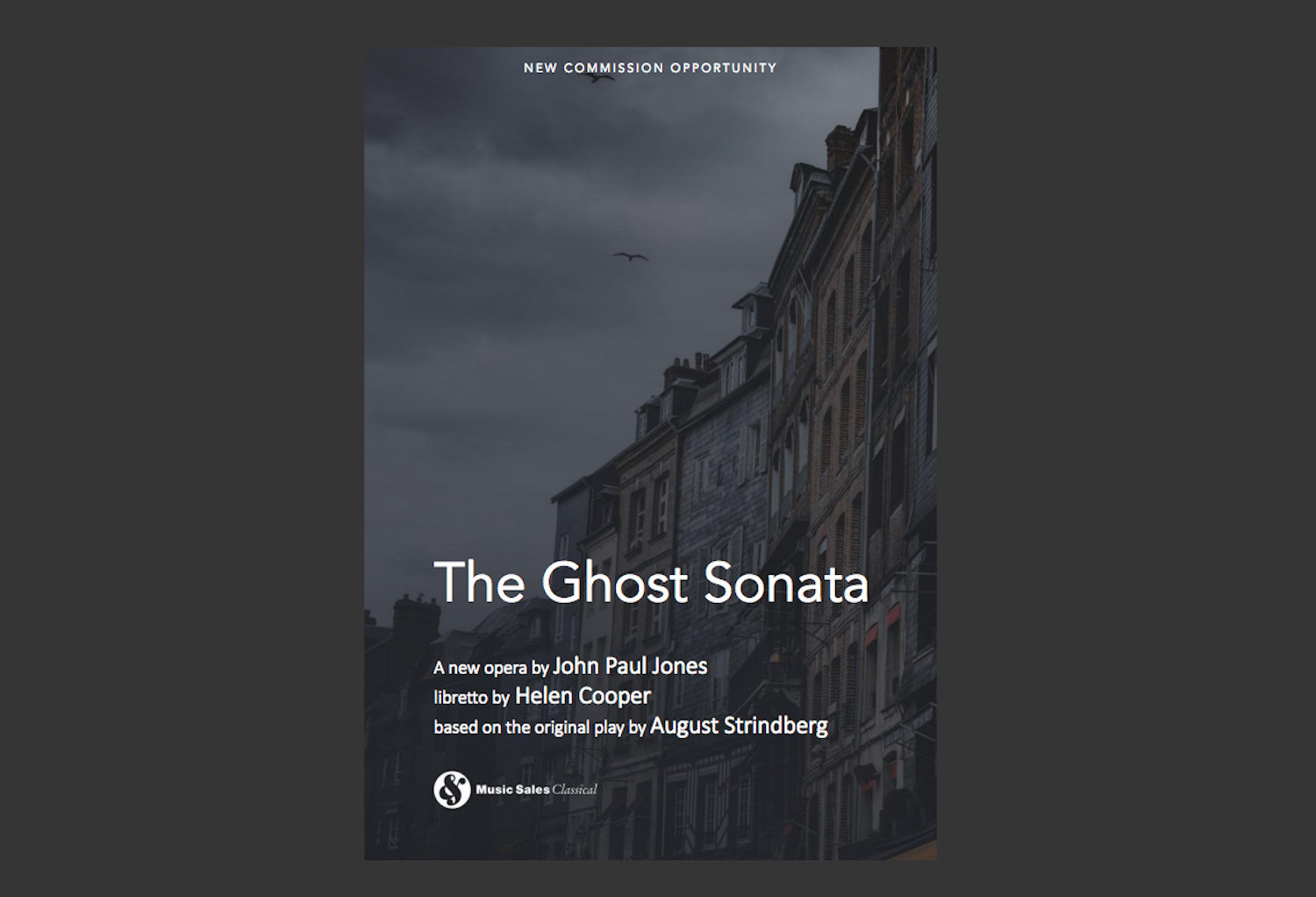
The document, which was published in April 2017, says that “The Ghost Sonata” is expected to be performed in the 2019/2020 season.
The brochure also describes a three-track promotional CD which has been created to give potential commissioning partners a taste of the opera.
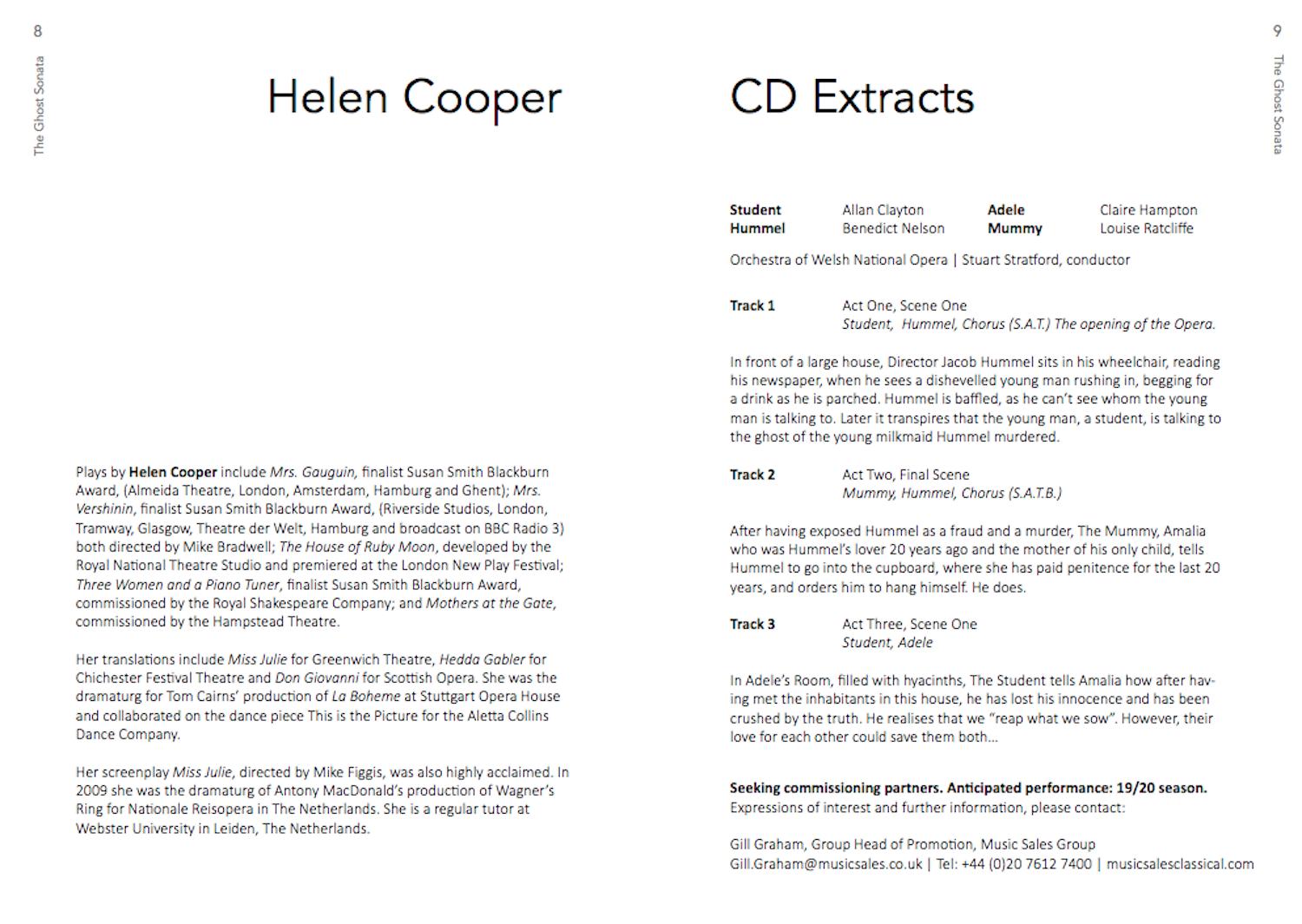
Here’s Jones’ statement from the promotional brochure for his upcoming opera:
When first asked if I was interested in writing an opera, I did not feel that I knew enough about the medium to do justice to the project. I then recalled my childhood days touring with my parents with Variety companies, feeling the wonder and magic of music and theatre combined. These memories, along with the passion for opera which I have nurtured over the years, gave me the inspiration to embark upon this adventure.
Choosing the right subject was of the utmost importance for me, and after much research I came upon August Strindberg’s The Ghost Sonata. I realised that this was a piece of just the sort of darkness and complexity that I was looking for. Although written at the turn of the 20th century, it seems to me a very modern play, concerning itself with power, greed and deceit as well as frailty, cruelty and loves lost and sought. The depth of the characters and the emotional undercurrents give great scope for music, and I intend to use the full range of the symphony orchestra to convey both the atmosphere, suspense and passion of the piece employing mainly lyrical and tonal, yet progressive materials. I am also very happy to be writing for voices again – the heart and soul of the opera.
It is also very exciting to be working with my librettist Helen Cooper, and know without doubt that between us we are making a very mysterious and dramatic piece.
One page of the brochure lists the various singing, acting, and orchestra roles that the opera will require:
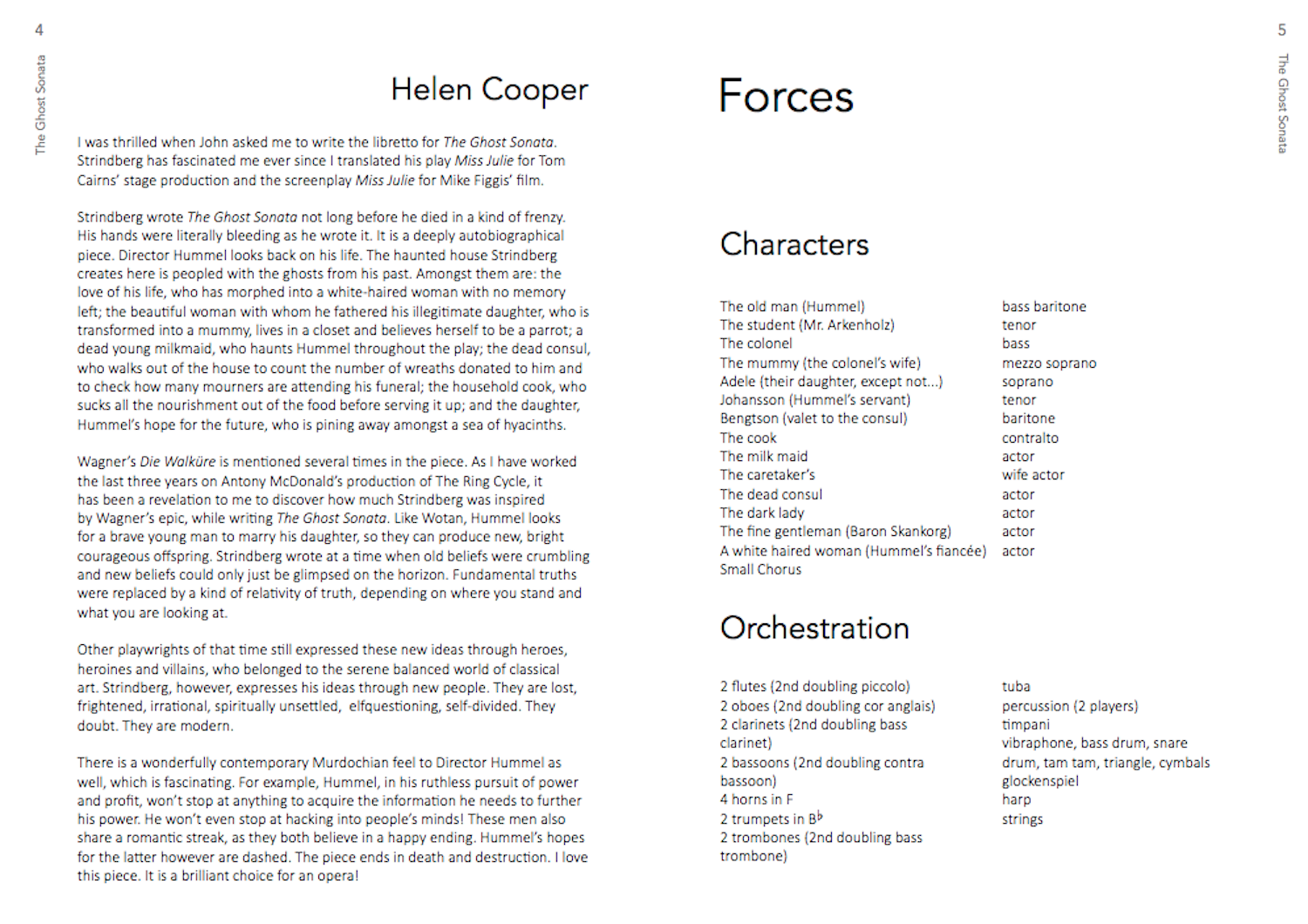
Jones has been working on his opera since 2010
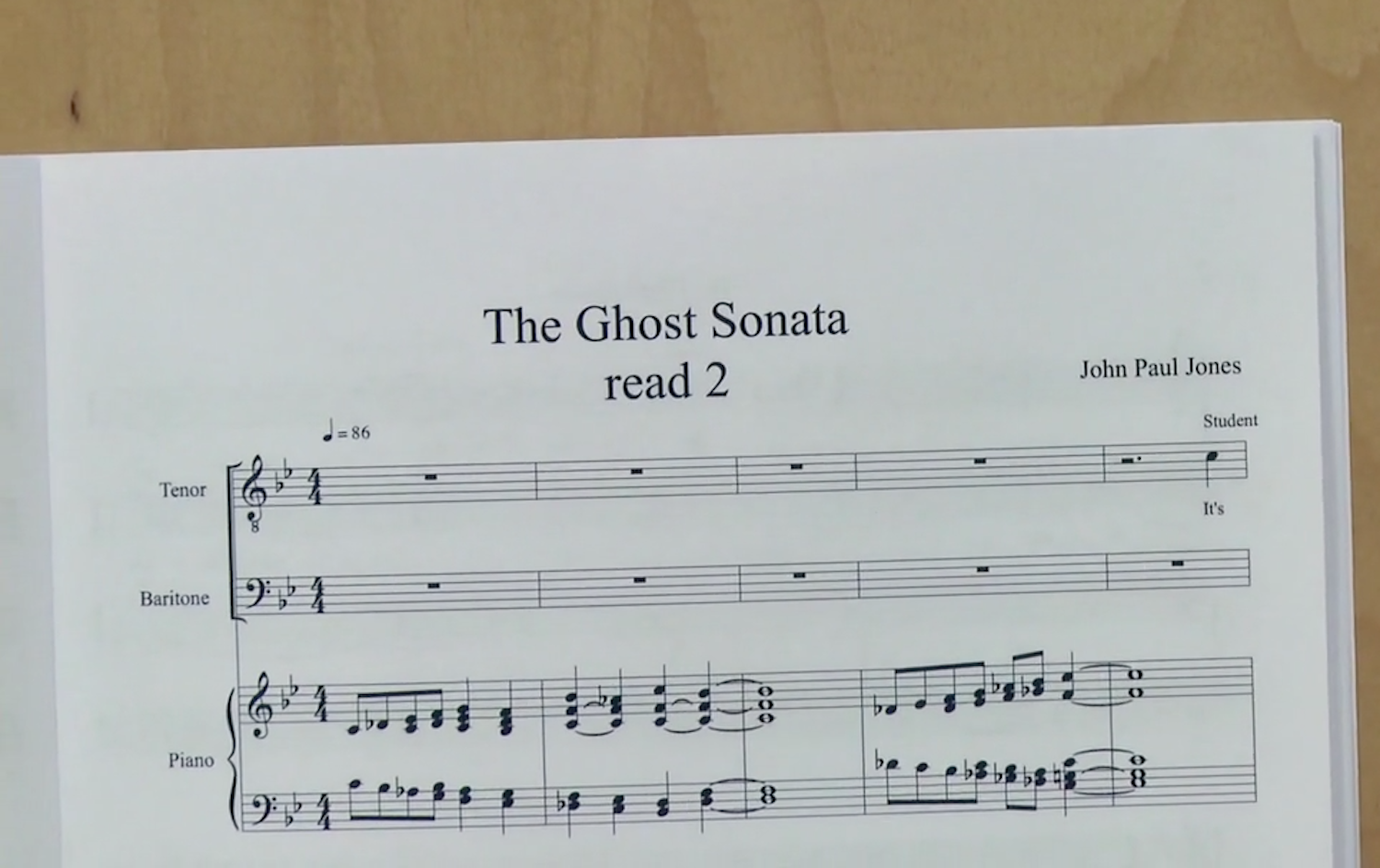
(Vimeo/Music Sales Ltd)
Jones has spent years perfecting his opera. He began talking about it publicly in 2013, but evidence online shows Jones has been in talks about the project since at least 2010.
Jones has explained in interviews that his upcoming opera is an adaptation of “Spöksonaten” (“The Ghost Sonata,”) a play written by Swedish playwright August Strindberg in 1907.
The play is about a student and the people who live in a fancy apartment building in Stockholm. A mysterious character in a wheelchair named Jacob Hummel allows the student into the building, but then the student finds that everything inside the apartment is hellish.
The play explores themes like the supernatural and the class divide. Here’s how Jones described the play in a June 2016 interview with Tight But Loose: “It’s a psychological drama — it’s very dark there are a few comic moments in it but not too many.”
The opera has faced several delays
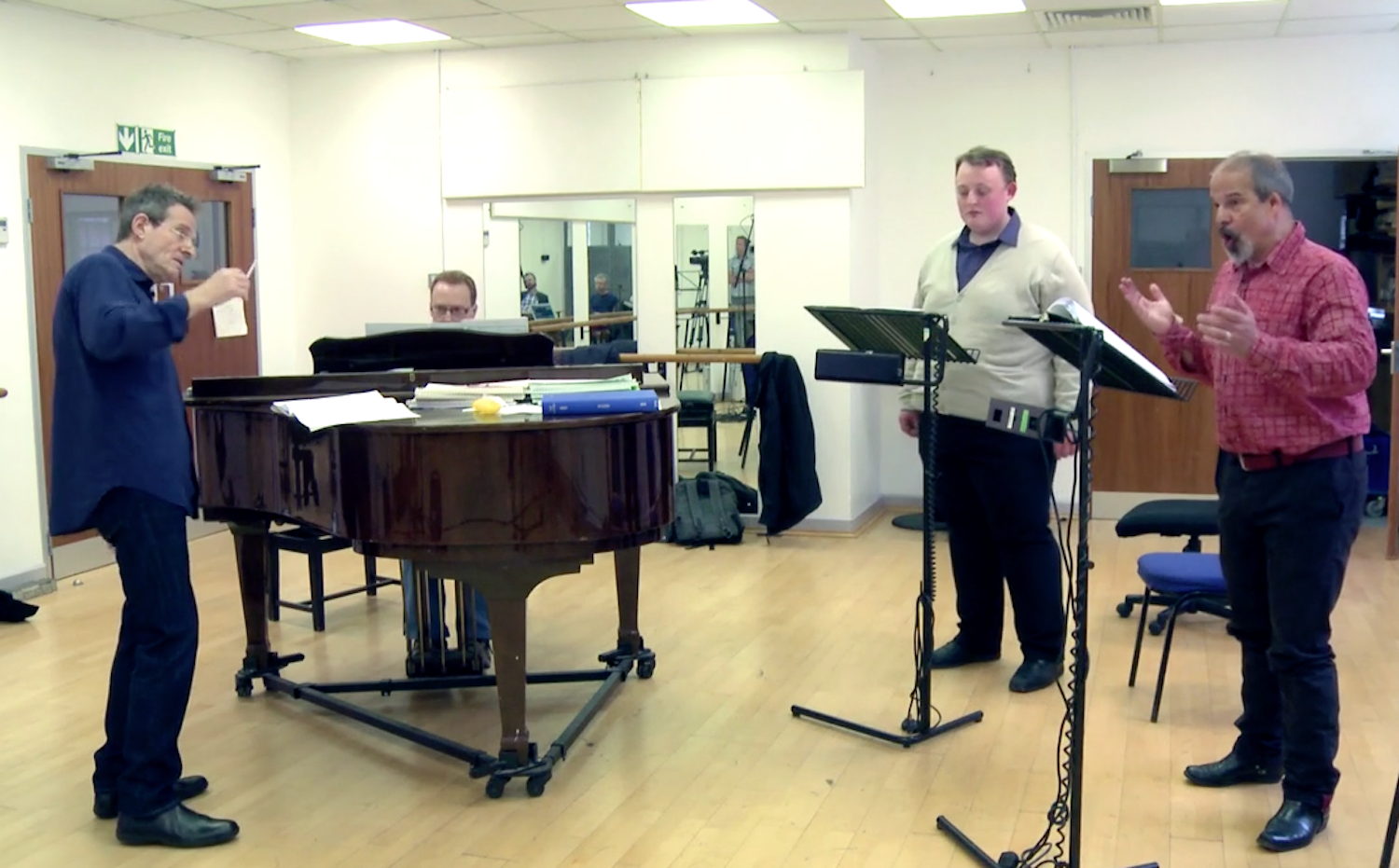
(Vimeo/Music Sales Ltd)
Clearly it has taken a long time for this opera to come to fruition, but it seems like it is taking longer than Jones first thought. He said in 2013 that he had finished the first act, and in 2015 he said his opera would be performed in 2016. In another 2015 interview he said “several opera houses” were interested in his opera.
And Jones said in a 2016 interview with Tight But Loose that “I’ve just about finished it. All the orchestration is done now so I’m talking to opera house directors. There are several interested, so hopefully we can get it off the ground real soon. It will probably be next year when it goes into an opera house.”
Here’s our transcript of what Jones said in the promotional video for his opera:
So, yeah, why am I writing an opera? Well, a friend of mine, and a colleague that I worked with a long time ago with Diamanda Galás, Gerald Thomas, got in touch and said ‘we should write an opera.’ And I went ‘well, I don’t know.’ You know, not having done anything like that before. But a project was coming to an end, and I went out, I think it was in Oslo, and I went out and got a box set of the Chéreau Boulez’s ‘Ring’ and just kind of watched it in my hotel room. And I just got fired up and thought ‘hmm, actually, this is a great medium which I wasn’t really familiar with.’ I mean I’d obviously been to the opera, but I wasn’t really familiar with it.
Opera to me is … a musical is like a play with songs. But opera is total … the play is the music, the music is the play. It’s totally integrated and, I don’t know, having seen the Wagner and then I’ve just started to research more and got DVDs, went to operas. And yeah, researching subjects. A friend of mine, Mark-Anthony Turnage, told me that’s probably the hardest thing. Writing the opera’s easy, finding a suitable subject is probably the most difficult thing.
I know, subject-wise, I really wanted characters, characterisation, and a good story, a good plot, something to … it needed narrative, it needed dramatic energy for me. My background has been in classic and in rock music but it’s also in electronic music. But I’ve decided not to use electronics or samples.
If you have a full orchestra, you know, it’s a huge synthesiser, basically. And if you’re clever with the writing you can get pretty much anything you can do with electronics, I think.
The clue in the name of ‘The Ghost Sonata’ is ‘ghost’ and ‘sonata.’ And sonata is a form of three movements. And there is dramatic reason for that in the play. I want to tell the story of the play, as well. It’s a good story. And it’s one of the reasons I chose it. And so I wanted to keep the form that Strindberg had and I think it works quite well. I sort of like the idea of having two intervals and making it a nice evening rather than, you know, trying to shovel everything into two acts where you feel you’re just sitting around too long or it’s all rushed and…
Act one is complicated and the longest act and will probably be between 50 minutes and an hour. And then act two will be shorter, I think about 40 minutes, and act three will probably be about 30 minutes. I mean, that’s how I’m envisaging it.
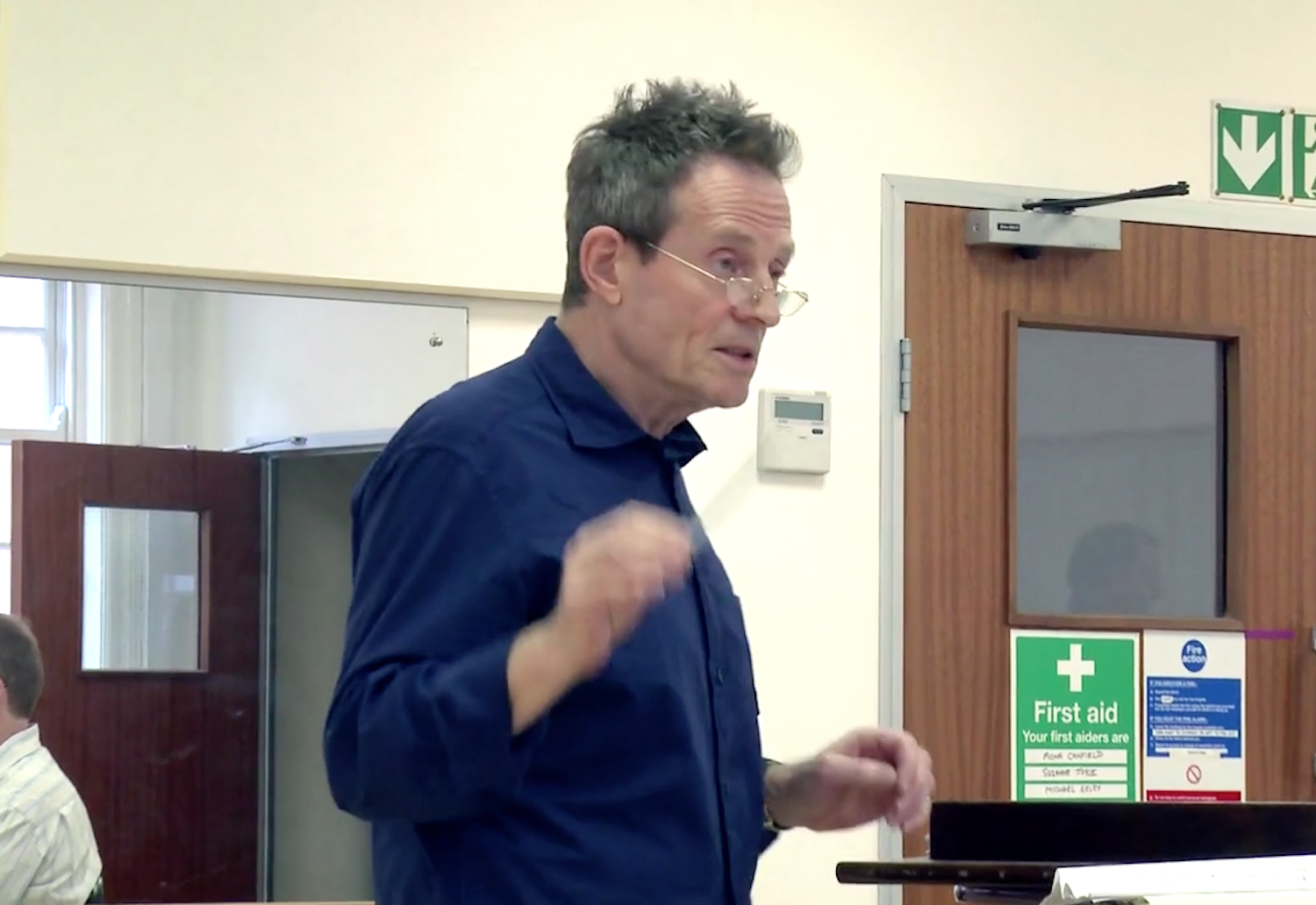
(Vimeo/Music Sales Ltd)
The orchestra, I’m hoping to use a large orchestra, yes. It gives me the most colour, plus I do like a good string section. I’ve heard … I’ve been to a lot of opera recently and the most impressive operas have been with full orchestras, for me.
The setting of the opera, period-wise, isn’t so important for me. I would tend to leave that to a director because the story is … I mean, the story is universal, but the story is strong enough to be set in the past, in the correct period, in the future. And if a director has a really good idea of how to set it then I’ll go with that.
It’s a modern story, really, of manipulation and greed and envy and, you know, all the stuff we love about our fellow human beings.
I’m very excited by this, by this whole project. I mean, it’s a completely new world for me. I used to be an arranger and orchestrator before the Zeppelin days. And, in fact, now I come to think of it, I didn’t actually have a piano and I used to have a tape recorder with a song and I would just sit and write and do the arrangements in my head. At the moment, I use a computer and a keyboard which has sort of samples which sound dreadful but at least I can figure out the harmony because it’s quite complex harmony that I’m using.
I actually, I was performing in an opera, a Mark-Anthony Turnage opera – ‘Anna Nicole,’ which was quite timely. It was a couple of years ago now wasn’t it? I think so, yes. And I went to, I was only supposed to be playing in one scene and ended up in the pit throughout the whole opera with a book of a part under Pappano, which is fantastic, a great experience being in the pit and going to all the rehearsals and just seeing how it was put together.
I mean, it’s a huge project. It’s a huge project, but it’s a very exciting project. And, you know, I can’t wait for the first night, myself.
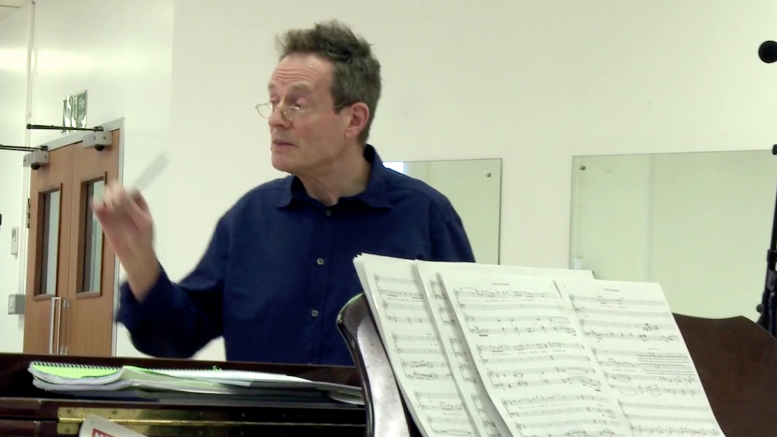
I cannot get the video to work. I have the ” but not a leftone and a right one for the password.
I am looking forward to this; as I have never been to an opera. This sounds intriguing and a perfectly good one to attend. I am positive Jonesy has a Masterpiece on his hands. ~¥
Is there a DVD of this opera?? Or will it be broadcasting on YouTube or pbs for example??